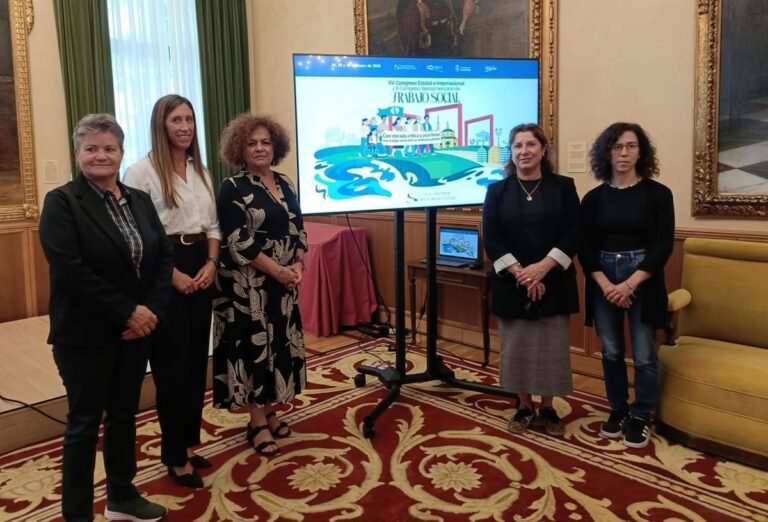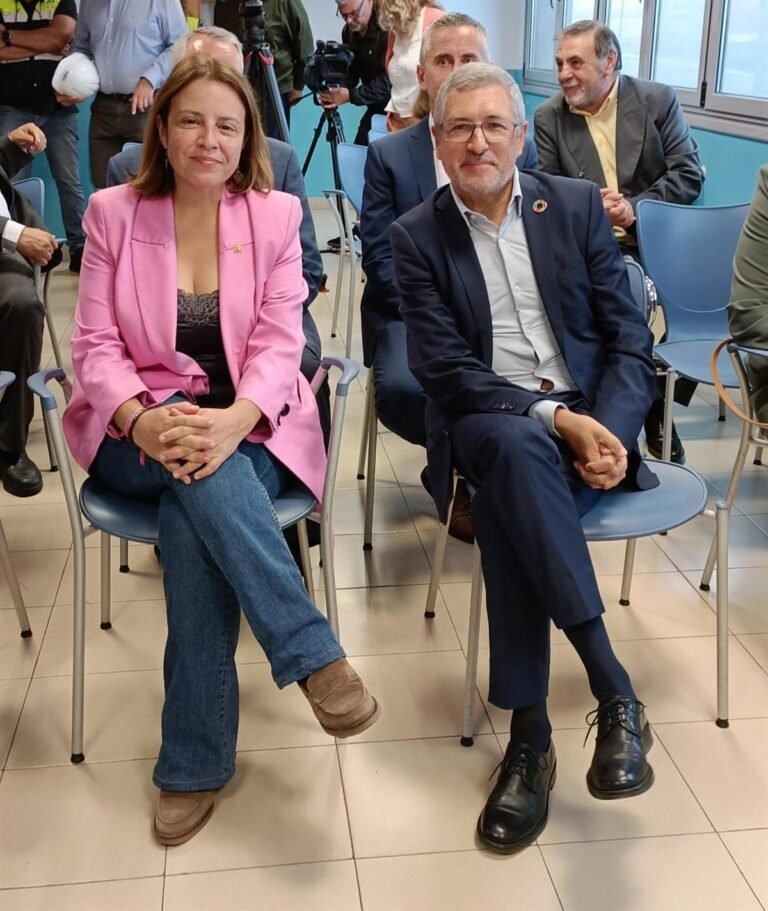
It was during the institutional event for the Day of Exile established by the Democratic Memory Law
The Niemeyer Center in Avilés has been the venue for the institutional event on Thursday that commemorates the Spanish republican exile as established by the Democratic Memory Law. Declarations of recognition and reparation were presented to about twenty exiled individuals, including five from Asturias. This year, the day of exile has been dedicated specifically to the children of the war.
The event was attended by the Minister of Equality, Ana Redondo, who stated that with this event, the government reaffirms its commitment to democratic memory, which is also a feminist memory. «There is no justice without memory, and no complete memory without the names of all those who resisted,» she said.
Redondo, who read a text by the writer and journalist María Teresa León, known for using words as a shield, pointed out that this event «invites us to remember but also to confront one of the deep wounds of Contemporary Spain.»
ASTURIAS, LAND OF EXILES
On the other hand, the Secretary of State for Democratic Memory, Fernando Martínez, mentioned that this year the institutional event takes place in Asturias precisely because from the port of El Musel, thousands of minors fled the war and dictatorship on ships, hoping to return, but many never did.
Martínez emphasized the efforts of the left-wing government to keep democratic memory alive, as he believes it is the main antidote against the reactionary wave. «Let us never forget to remember,» he said.
Meanwhile, the Asturian President, Adrián Barbón, wondered how anyone could be against events like this. «Remembering may sting, but it is a moral obligation,» said Barbón, advocating for opening the doors of memory wide to avoid repeating past mistakes, especially at a time when reactionary extremism lurks in every election and corner of the world, even in Europe.
Barbón stated that «remembering is a moral obligation against forgetting, with an implicit purpose: to prevent those events from happening again.» «Today, we uphold the three pillars of democratic memory: truth, justice, and reparation,» he highlighted.
THE VOICE OF THE RECOGNIZED
During the emotional event, the voices of those recognized on Thursday were heard. Rosa Muñoz, daughter of José Muñoz Congost, one of the recognized individuals who passed away in 1996, spoke on behalf of all those who received recognition from the Spanish government that day. She highlighted that the story of the republican exiles is one of the most painful yet dignified chapters in the history of Spain.
She recalled how thousands of children experienced the fear of a hasty escape. «They were called war children, but more than war children, they were victims of a tragedy. They left Spain to avoid horrors and grew up in another country, always carrying the memory of theirs within them. Even in exile, the republicans never stopped dreaming and fighting,» she said.
She also recounted the story of her father, a republican teacher whose only weapon was a pen, ending up in a concentration camp in Algeria. She emphasized that this event vindicates the memory of all of them, their contribution to the memory of Spain, and gives them the place that was denied to them for decades.
RECOGNITIONS
The Asturians recognized by the government were Alejandro Rodríguez Álvarez Alejandro Casona, Acracio Fernández Pérez, Pelayo José López Pérez, José Maldonado González, and María Luisa Muñoz Concecho.
In addition, there were 15 other recognized exiles: Nuria Balcells, Pablo Benítez, Rosario Celia Canteli, Aurora Correa, Jose Cuenca, Emilio Díaz, Alfredo Espinosa, Andrés Gimeno, Conrado Lizcano, Teresa Medina, Vicente Moreira, José Muñoz Congost, Francisco Padrino, Matilde de la Torre, and Vicente Verdeguer.
During the event held at the Niemeyer Dome, attendees also enjoyed performances by the El León de Oro Choir, Marta Elola, and the Mar de Violetas Dance School.






